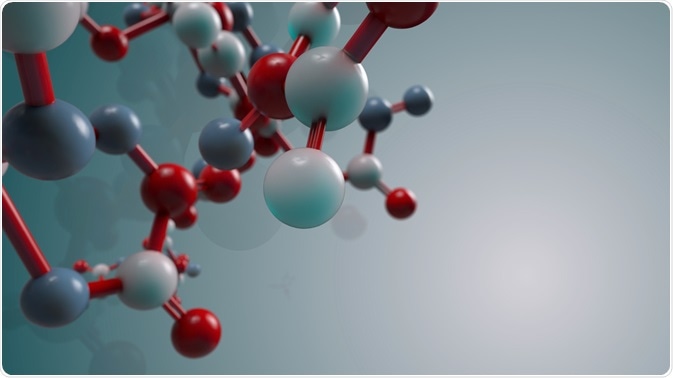Hydrophilic interaction chromatography is a variation of liquid phase chromatography that overlaps in function with ion chromatography and reversed-phase liquid chromatography. This method offers several advantages when performing the analysis of polar or basic solutes.
 arleksey | Shutterstock
arleksey | Shutterstock
What is Hydrophilic Interaction Chromatography?
HILIC uses a polar stationary phase, such as silica or polar bonded phase, and the mobile phase consists of 5- 40% water that is combined with a less polar solvent, such as acetonitrile. Polar or even non-polar silica stationary phases have been used in conjunction with highly organic solvent.
The phases of hydrophilic interaction chromatography may be grouped into five classes: simple unbonded silica, amino bonded phase, amide bonded phase, cationic bonded phase, and the zwitterionic bonded phase.
Although the usual choice for the mobile phase is acetonitrile, any aprotic solvent that is miscible with water can be used for this purpose. In cases where alcohol is used, the concentration should be higher such that they can have a similar degree of retention as a combination of aprotic solvent and water.
In some cases ionic additives, including ammonium acetate and ammonium formate, can be used to control the two phases. Similarly, salts can increase the polarity of the mobile phase and affect the process of elution.
Advantages of Hydrophilic Interaction Chromatography
Increased detection sensitivity
This method can enhance the sensitivity of detection of mass spectrometry. Hydrophilic interaction chromatography has high organic content, making it efficient for spraying and desolvation during electrospray mass spectrometry. In a study, the sensitivity could be increased by three orders of magnitude compared to reversed-phase liquid chromatography while performing the analysis of bronchodilator salbutamol.
Higher flow rates
As the viscosity of the mobile phase is low, the flow rate can be higher in this method when compared with reversed-phase liquid chromatography. In the case of reverse-phase HPLC, the viscosity of acetonitrile is 0.9–0.86 centipoise (cP).
This is twice the viscosity of acetonitrile used in hydrophilic interaction chromatography, where it is around 0.4 centipoise. The advantage of higher flow rates is greater efficiency compared to reverse-phase HPLC. Also, the diffusivity of the solute is higher in the mobile phase of this technique.
Higher efficiency
The use of mobile phases that have low viscosity also allows the use of columns that are twice as long as the ones used in reverse phase HPLC. Studies show that low backpressure using superficially porous silica phases with a small particle size can achieve very high efficiency. This can be combined with the lower viscosity of the mobile phase in hydrophilic interaction chromatography to achieve overall higher efficiency.
Faster separation speeds
The viscosity of the eluent also leads to extremely fast separation of the sample, which is associated with lower impedance during separation. In a study, three superficially porous silica columns (15 cm long) were serially coupled, and separation was achieved in around 15 minutes, demonstrating the higher speed of this method.
In another study, it was shown that Ethylene Bridged Hybrid columns (BEH) could achieve a more efficient separation that produced sharper peaks. This can increase the sensitivity of the method.
Loading capacity for basic Solutes
The loading capacity for basic solutes is higher compared to reverse phase HPLC. However, as the solvent primarily consists of acetonitrile, there can be issues regarding the solubility of certain analytes.
Further Reading
Last Updated: Apr 15, 2019